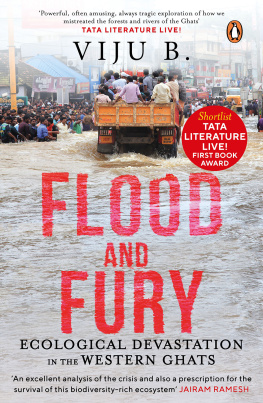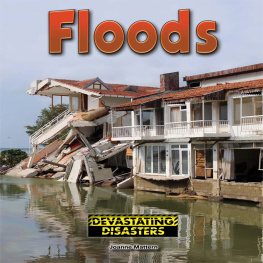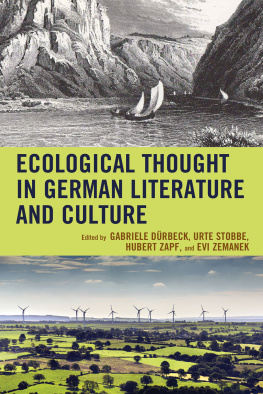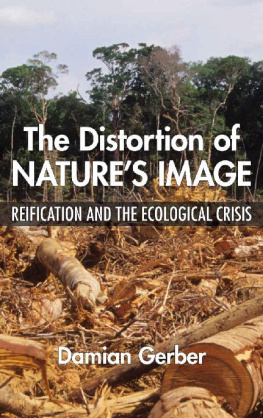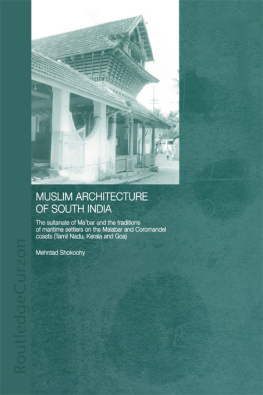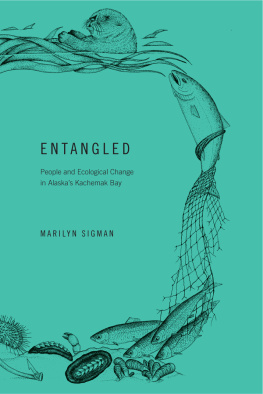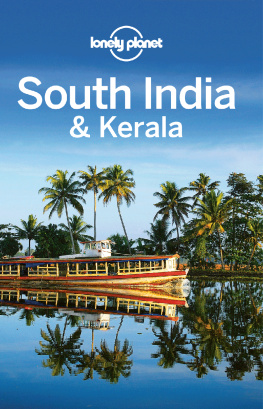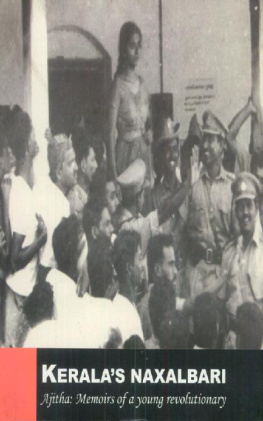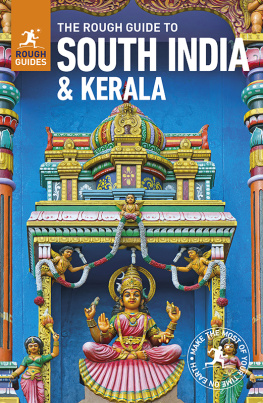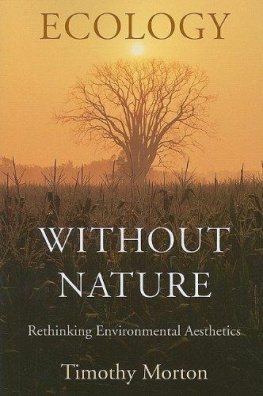Acknowledgements
The central character in Flood and Fury is the Sahyadri. The book attempts to investigate why the benevolent mother called Sahyadri has turned hostile over the years. The narrative is weaved through the lives of numerous characters living in Sahyadris bosom, who pursue their aspirations, many a time cocooned in their prejudices, insecurities, faith and greed, while a very few protect her lifelines (rivers and forests) for posterity.
The book would not have materialized without the support and guidance of a lot of people, some of whom, without doubt, enriched me with their perspectives and understanding of Western Ghats complex ecosystem.
There were precious others who opened up their homes and hearts, welcomed me with food and shelter, and spent valuable time with me, sharing heart-rending stories, all more than what I could have asked for.
Foremost amongst them are the members of the tribal community living in the forests, who sang their beautiful songs highlighting the relationship between man and nature. In particular: Choriyan Moopan, Ramu and Murugan (Attappady), Geeta and her mother Girija (Vazhachal), Cheruvayal Raman (Wayanad), Bhaskaran (Idukki) and Rama Velip (Goa).
Many thanks to Devadas R. (Kuttanad), Joby (Kavalam), S. Hari (Aranmula), Sukumaran Unny (Wayanad) and C.P. Muthanna (Coorg), who spared time from their daily schedule to help me track down flood-affected victims.
The Kerala forest department was of great help, providing me access into the core forest areas, especially Shilpa V. Kumar, deputy director, Periyar Tiger Reserve; Krishnadas K.R, forest range officer, Nelliyampathy; M.N. Najmal Ameen, forest range officer, Silent Valley National Park; P. Jaya Kumar, senior clerk, Silent Valley National Park, who facilitated my entry into Silent Valley forests post floods; and James Wilson, special officer with Government of Kerala.
Many thanks to young researchers working in the important fields of ecology, hydrology, landslide studies and climate change, who not only spoke to me at length but also allowed me to use important infographics from their research studies: Alex C.J. and T.V. Sajeev (Kerala Forest Research Institute); C.K. Vishnu Das and Suma R. (Hume Centre for Ecology and Wildlife Biology); Dr Shekar L. Kuriakose (member secretary, Kerala State Disaster Management Authority); Dr Sajin Kumar K.S. and Dr A. Biju Kumar (University of Kerala); Dr T.V. Ramachandra (Indian Institute of Science, Bengaluru); and P.K. Sajeev (Aikya Mala Araya Maha Sabha).
I am grateful for the illuminating conversations with environmentalists, intellectuals and friends, over many years, my guiding light on several complex ecological issues. The list is slightly long, but nonetheless of utmost significance: Madhav Gadgil, ecologist and architect of WGEEP; Jairam Ramesh, former environment minister; Dr V.S. Vijayan, former chairman of Bio-diversity Board; Dr Claude Alvares, Director of Goa Foundation; N. Santosh Hegde, former judge of the Supreme Court of India; C. Radhakrishnan, author; Sugathakumari, poet; G. Balachandran, author, and environmentalists M.K. Prasad, Harish Vasudevan, S. Guruvayurappan, Tony Thomas (One Earth, One Life), C. Jayakumar and R. Sridhar (Thanal), N. Badusha (Wayanad Prakrithi Samrakshana Samiti), Rajendra Prasad (Thampu), Dr P.S. Easa (wildlife biologist), T.D. Jojo (ATREE); and the dedicated team at River Research Centre, ChalakudyS.P. Ravi, Dr Latha Anantha, Unnikrishnan and Sebastian Joseph (head of the department, history, Union Christian College, Aluva).
Ever thankful to Jaideep Bose, editorial director, the Times of India, a great mentor and an exceptional editor, who gave me unbridled freedom over the last decade to pursue ecological stories in the Western Ghats.
Special thanks to Derick DSa, associate executive editor, the Times of India, for his invaluable guidance and encouragement.
I need to acknowledge the deep commitment of my dear friends and the lone crusaders who have been fighting to save the last remaining green zones in the Western Ghats. At the receiving end of the mining mafia several times, they have risked their lives to protect our vanishing forests: D. Stalin, Sandeep Sawant, Sumaira Abdulali, Ramesh Gauns and John Peruvanthanam.
I express my heartfelt gratitude to Kanishka Gupta, founder of Writers Side, and dear friend Chhimi Tenduf-La, Sri Lankan writer.
I deeply appreciate the support and guidance of the brilliant team at Penguin Random House. I thank Swati Chopra (senior commissioning editor), the insightful editor who recognized the relevance of the book and made it a reality. Many thanks to the cool-headed Joseph Antony and Chandna Arora for patiently handling the copy edits, and Ahlawat Gunjan and Neeraj Nath (design) for the thought-provoking cover.
I am grateful to my colleagues at the Times of India Manoj K. Das (resident editor, Kerala), Anil Nair (associate resident editor), B. Sreejan, Preetu Nair, Sudha Nambudiri, Aswin J. Kumar, G. Rajiv, Sai Kiran, R.K. Sreejith, Jipson Sikhera, Gireesh M.P., Gireesh Pillai, Disney Tom, Shenoy Karun, Nithin Sasidharan, Sandeep Vellaram, Sujith Chandrakumar, G. Prabhakaran, P.K. Krishnakumar (the Economic Times) and Chittaranjan Tembhekar for their timely assistance.
Thanks to my friends H. Krishnan, N. Subramanian, P.K. Abhay Kumar, Harry V.S., P.A. Joseph Denny and Mohan C.R. for helping me in this endeavour.
Last but not the least, I am thankful to all my family members for their unflinching support and encouragement D. Balanarayanan, Anu and Raj Nambisan, P. Balakrishnan, P. Narayanan, Sumathi, P. Sreedharan, G. Prabhakaran, Prashanth P., Pramod P., Ravi P., S. Anandavally, Nilav and Manu A.B., truly the better half, who is not only my harshest critic but also my biggest support, without which this work would not have been completed.
Notes
Introduction
. From Aithihyamaala, a popular work, which is an eight-volume compilation of legends and myths of Kerala by author and scholar Kottarathil Shankunni, published in 1909. Naranathu Branthan (branthan literally means madman) was amongst the twelve famous sons born to philosopher Vararuchi and his low-caste Paraya wife. His main hobby was to roll big stones up a hill and then leave them free to roll down. He might have wanted to teach the world some valuable lessons about human life, Sreekumari Ramachandran, trans. (from the Malayalam), Aithihyamaala: The Great Legends of Kerala, (Mathrubhumi Books, 2010).
. Arjun Raghunath, Kerala floods a result of poor dam management, 3 April 2019, https://bit.ly/2VPoce5 (last accessed on 5 May 2019).
Express Web Desk, 483 dead in Kerala floods and landslides, losses more than annual plan outlay: Pinarayi Vijayan, the Indian Express, 30 August 2018, https://bit. ly/2WSzlaz (last accessed on 5 May 2019).
Special Correspondent, Kodagu floods: Death toll at 16, The Hindu, 23 August 2018, https://bit.ly/2VCj1JI (last accessed on 5 May 2019).
. World Wildlife Foundation, About the Western Ghats, https://bit.ly/2LUt8tO (last accessed on 5 May 2019).
. As per a report by UNESCO published on 1 July 2012, https://bit.ly/2TYcWKI (last accessed on 5 May 2019).

